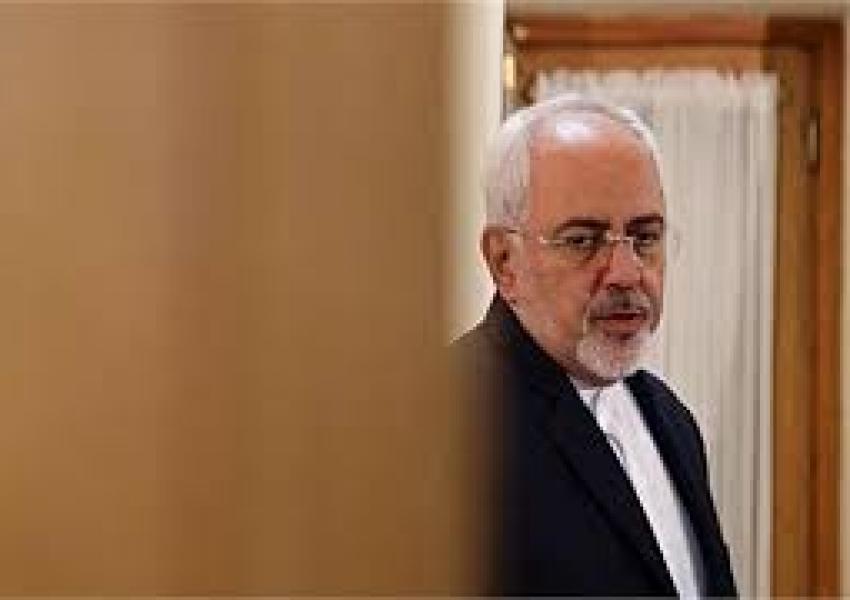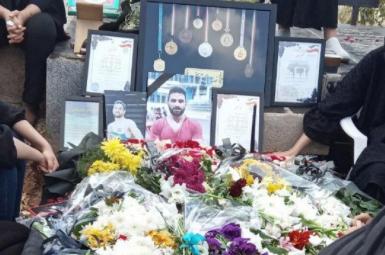
After ‘Eight Years Of Sweating Blood,’ Zarif Passes Iran Nuclear File To Raisi
Mohammad Javad Zarif, Iran’s foreign minister, has acknowledged the challenge of reviving Iran’s 2015 nuclear deals with world powers will be left to the administration of President-elect Ebrahim Raisi (Raeesi), who takes office in August. President Hassan Rouhani, an architect of the nuclear agreement during his first term in office, had hoped to conclude talks in Vienna over the lapsed agreement before his presidency ends.
In a letter dated July 11 attached to a regular foreign ministry report to parliament’s National Security and Foreign Policy Committee on the deal (the JCPOA, Joint Comprehensive Plan of Action), Zarif expressed clear disappointment.
Zarif recalled "two years of compendious and exhausting negotiations” leading to the JCPOA in 2015, six years of trying to prevent the agreement failing after its conclusion, and eight years of “sweating blood without complaint over unjustified accusations” from Iranian opponents of the deal.
Zarif offered "friendly advice" to the Raisi team that there was no chance of restoring the JCPOA without “minimal” acceptance of the “worries and demands of all sides," and that a “maximalist approach” and search for an "ideal agreement" could harm the national interest. He called on incoming officials to put aside political and factional interests.
"It's now the best time for such understanding and unison [among all authorities to reach an agreement in Vienna]," he said, presumably in reference to Raisi's election completing hard-liners' control over all forces of the government.
The foreign minister suggested Iran might have been better placed had it moved quicker to seize opportunities opened in 2015 by the JCPOA to attract more foreign investment rather than being bogged down by continuing domestic arguments over whether the deal had been a victory or defeat. This, he wrote, might have helped deal with the ‘maximum pressure’ of draconian sanctions imposed by the US when President Donald Trump withdrew from the deal in 2018.
The foreign ministry report lists sanctions that should be lifted based on discussions in Vienna – including those introduced by Trump that are incompatible with the JCPOA or that prevent Iran benefiting from the JCPOA, including those against Supreme Leader Ali Khamenei, sanctioned by a Trump executive order in 2019.
The report says the US is prepared to delist the Revolutionary Guards (IRGC) as a ‘terrorist’ organization, presumably referring to the 2019 Trump executive order, issued against Pentagon advice, rather than to a maze of other sanctions against the IRGC or affiliates.
The reports says that while the US is also ready to reverse several pre-Trump executive orders, it will not agree to remove “primary sanctions” imposed since the 1979 Revolution nor some “non-nuclear” unilateral US sanctions against individuals and entities over “terrorism,” alleged human rights violations, or involvement in Iran's missile program. The report makes clear Iran would not negotiate over these matters − presumably meaning they are not part of the Vienna talks and that Iranians should not expect them resolved as part of reviving the JCPOA.




